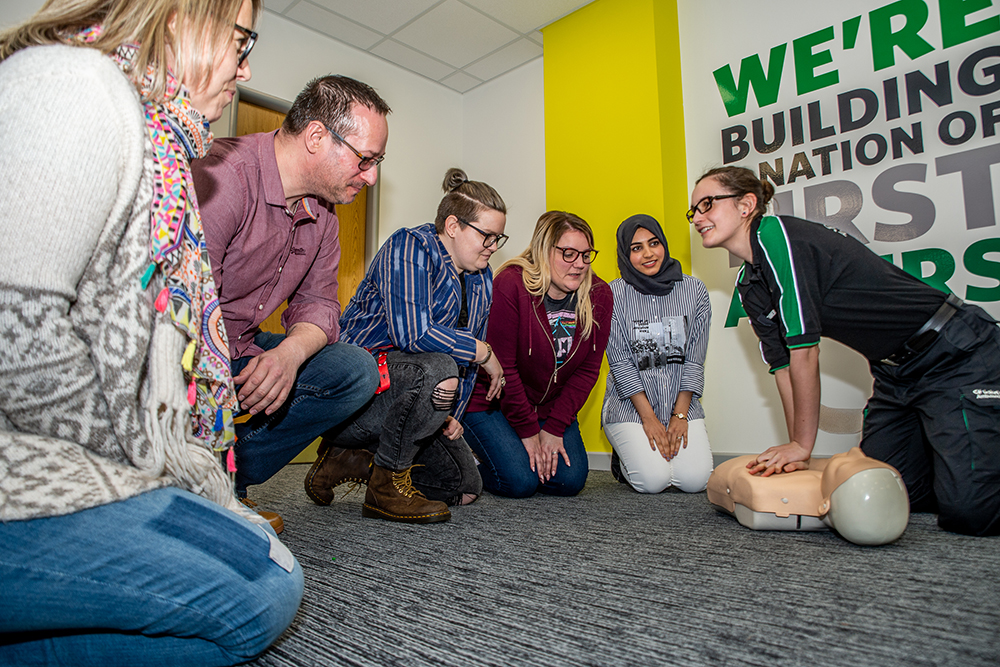Mental health at work: a top priority for forward-thinking companies
Our mental health influences every aspect of our lives, from personal relationships to professional performance.
And in recent years, this has become a critical focus in the workplace, with organisations recognising that, just like physical health, it plays a fundamental role in both employee well-being and overall business success.
This shift isn't just a passing trend – it’s a response to the growing evidence that mental well-being significantly impacts workplace dynamics and business outcomes.
The good news is that a small investment in employee mental health can go a long way.
Research shows that for every £1 spent on improving employee mental health, businesses see a return of £5 in increased productivity, reduced absenteeism and employee retention.
A new era of mental health awareness
Recognition of the importance of good mental health in the workplace has been a long time coming: for years, corporate well-being has typically focused on physical health. While companies have increasingly recognised the need for a more holistic approach to employee health, the pandemic marked a significant turning point for many.
One example of this is the increasing responsibility we see companies taking for mental health issues often closely related to work, such as stress. Three-quarters of organisations are taking steps to reduce workplace stress, research shows. Similarly, burnout is another area where we increasingly see companies taking action, with more than half of workers having experienced at least one symptom.
These figures underline the message that poor mental health has the potential to affect anyone at any time, even if only transiently.
The rise of remote and hybrid working environments brings a new set of challenges for employers to consider. While these ways of working can reduce stress for some, it’s not the case for all. They bring an increased risk of loneliness and isolation. Work and home lives can bleed into one another, making work-life balance harder to maintain. And it can be harder for organisations to keep tabs on colleagues’ general well-being.
Given this, removing the stigma around mental health discussion in the workplace is more important than ever. To effectively guide employees to the help they need, companies need to normalise conversations around mental health and create a culture of openness. But many employees continue to feel uncomfortable discussing mental health at work and are unconvinced their company would support them, research suggests.
Successful companies need healthy workers
Beyond the moral and legal need to support workers, there is also a financial imperative to having a healthy workplace. Poor mental health costs the UK around £51 billion a year.
Presenteeism is the largest contributor to workplace inefficiency – where employees work despite being ill but can’t perform at their full capacity – costing employers approximately £24 billion annually.
In addition, when employees feel unsupported or that their well-being is being damaged, they are also more likely to look for work elsewhere. Employee retention issues are not only costly for businesses, but also negatively impact the well-being of those who remain.
So, cultivating a healthy workplace culture and support structure must be a priority for businesses. Investment in mental health support can create measurable returns, with research suggesting that businesses will see the biggest return on investment when this support is proactive, rather than purely reactive.
Mental Health First Aid as a critical tool
Against this backdrop, Mental Health First Aid is becoming increasingly recognised as a valuable asset in the workplace.
Trained mental health first aiders act as a vital first line of support. They have the skills to identify when colleagues are struggling and can support them in finding appropriate help. This often means that small issues are prevented from escalating into bigger problems, and absenteeism can be reduced. In addition, an overwhelming majority of mental health first aiders say their training also improves their effectiveness at work, as well as being enriching and rewarding.
Mental health first aid also helps to foster ongoing mental health education and awareness across organisations, ultimately helping build a stronger, more resilient workforce.
The way we think about mental health in the workplace has transformed in recent years. However, while increased conversation and awareness are crucial steps forward, they are not enough. Companies must take concrete action to support their employees, particularly as more isolating working models emerge. As the workplace continues to evolve, the need for mental health support will remain consistent.
By investing in mental health first aid and making it an integral part of company culture, organisations aren’t just helping individuals – they’re building a stronger, more engaged workforce.
A company that prioritises mental health will create a better, more productive work environment for everyone.
Book your mental health first aid course here.




